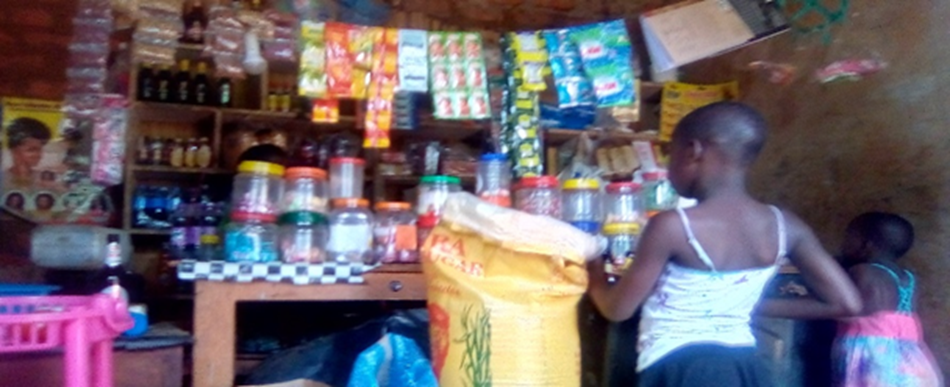
Communities in Uganda are funding their own transformation through the establishment of Village Savings and Loans schemes that provide affordable and flexible rural financing options to stimulate investments into diversified sustainable livelihoods and enable small business development and strengthen food and income security for rural people.
In the Karamoja sub-region of Uganda, Village Savings and Loans schemes (VSLS) are transforming rural agro-pastoral communities and growing income and food security, and this couldn’t have come at a better time.
The livelihoods of people in this sub-region are inextricably linked to rain-fed agro-pastoralism, mainly producing enough to feed themselves and their families, with little more to go around. This subsistence production system is highly vulnerable to climate risks like seasonal drought, flash flooding and dry spells which are threatening communities’ ability to adapt to climate change.
The project Fostering Sustainability and Resilience for Food Security in Karamoja sub-region (F-SURE) in collaboration with implementing partners has facilitated the establishment of VSL schemes as an integral part of agro-pastoral farmer field schools (APFS) across Karamoja, fostering adaptation and resilience to recurrent climate-related shocks. Led by the Food and Agriculture Organisation of the United Nations (FAO) and the United Nations Development Programme (UNDP), the Resilient Food Systems (RFS) Uganda project is being implemented in partnership with the government of Uganda’s Ministry of Agriculture Animal Industry and Fisheries.
The purpose of VSLS is not only to financially empower rural communities but also to stimulate investments into small business development and agricultural growth. This works by complementing the Climate-Smart Agricultural practices that are being scaled up through APFS and work by community groups supported by over 20 local and international implementing partners, non-governmental and community-based organizations under the F-SURE project. The VSL schemes are self-managed savings and credit groups that start from scratch, and self-capitalize using the Rotating Savings and Credit Association (ROSCA) model, where people can pool their savings and borrow from themselves. These schemes have the potential to grow into independent, self-sufficient community organisations. The project implementing partners provided training on financial literacy and small-scale business management, along with assorted materials like a cash box and recordkeeping books. The energy comes purely from the interest of the project beneficiaries in transforming their community into one with a culture of savings and investment into productive assets, safeguarding natural resource-dependent livelihoods, and improving food security.

As part of the VSL scheme, the group members contribute to a pool of finances through weekly savings of an agreed amount in the form of shared purchases and a welfare fund that allows them to access loans to invest in small build businesses. This also provides access to interest-free emergency assistance through a social fund which helps to bridge lean-season food and income gaps. Women and other vulnerable groups are specifically targeted through the project, which brings the groups together for weekly meetings that facilitate savings and investment into livelihood diversification and reduce reliance on negative coping strategies that undermine the resilience of individuals, households and the community as a whole.
More than 200 community groups, mainly APFS, have established VSL schemes across the six project districts of Kaabong, Karenga, Kotido, Moroto, Nabilatuk and Nakapiripirit. This brings together over 6000 community members (about 70% females) who have cumulatively saved over 300,000 million Ugandan Shillings (UGX) – more than USD 80,000 over a 12-month cycle. More than half of the savings have been loaned to members for investment into various small businesses, education, health and notably helped contribute to reported improvement in food and income security; especially in the face of shocks including prolonged dry periods, pest outbreaks and the COVID-19 pandemic.


Narogole Village Savings and Loans Association (VSLA) is located in Lorengechan Village, Kumet parish and is led by chairperson Apio Jacinta, a farmer whose life has been changed by the VSLAs and is now able to confidently afford her children’s school fees.
The Narogole VSLA was started in 2017 by 14 community members who practiced saving and loaning without record keeping. This changed in 2020 when they joined Farmer Field School activities under F-SURE where they learned CSA, Sustainable Land Management techniques and VSLA methods, among others. Following F-SURE, they are now officially registered as a community-based organisation with 30 members comprising 25 females and 5 males. In their first cycle, the group saved over UGX 20 000 000 (about USD 5 400).
Apio Jacinta herself received a loan of UGX 80 000 (approx. USD 21) in 2021 to hire oxen to till her farm, and UGX 140 000 (approx. USD 45) in 2022 for bush clearing and land tilling. She also borrowed UGX 60 000 (approx. USD 16) to purchase improved seeds; she used to have to sell her chickens to afford seeds. Not anymore.
With these inputs, Apio Jacinta earned a total of UGX 836,000 (over USD 225) and is inspiring other members of her community to join VSL schemes and take on new income-generating activities like opening small businesses.
Putting communities at the forefront of their own transformation has shown us time and again that they are willing, able and determined to foster integrated and resilient food systems.
Footnotes:
Subscribe to our monthly newsletter to receive updates on stories directly from the field across all our projects, upcoming events, new resources, and more.